Our Approach
As a result of the remarkable progress in cancer detection and treatment, millions of people in the United States are now living beyond their cancer diagnosis. However, many cancer survivors struggle with adverse cardiovascular effects brought on by treatment and therapies. Together with the Carl & Dorothy Bennett Cancer Center, Stamford Health’s Cardio-Oncology Program offers our patients a collaborative approach to diagnose, prevent, and manage the effects of cancer treatment on the heart.
Our specialists develop personalized, multidisciplinary treatment plans to fit each patient’s situation. We collaborate with experts in our field to assess the most challenging cases. We’re committed to expanding our knowledge and are actively involved in research to investigate new methods to identify patients at increased risk for developing cardiac complications or heart disease from cancer treatment.

Types Of Conditions We Treat
Our cardio-oncology specialists are committed to proactively identifying and seamlessly treating cancer patients who are at risk for long-term cardiac complications from their cancer treatment. Adult survivors of childhood cancer are particularly at high risk. This is because cardiac complications are actually the main cause of further complications, not necessarily the recurrence of cancer. Chemotherapy and radiation therapy can cause several potential short- and long-term cardiovascular complications. Here are a few conditions we treat:
- Accelerated coronary artery disease and ischemia.
- Myocarditis.
- Pulmonary hypertension.
- Pericardial disease.
- Hypertension.
- Thromboembolism.
- Arrhythmias.
Types Of Cardio-Oncology Tests
We recommend baseline imaging with echocardiography as part of routine care prior to starting cancer chemotherapy treatments that could lead to heart-related toxicities.
During treatment, a doctor may recommend any of the following tests:
- Conventional 2D echocardiograms.
- 2D cardiograms with strain imaging.
- 3D cardiograms.
Cardio-Oncology Research At Stamford Health
Meet Our Doctors
Cardio-Oncology FAQs
-
Are there specific risk factors that make cancer patients more susceptible to cardiac complications, and how does the program address them?Our cardio-oncology team recognizes that certain factors may increase the risk of cardiac complications in cancer patients and cancer survivors. These factors can include the type of cancer, specific treatments, and individual health history. Our program employs a comprehensive risk assessment approach, tailoring care plans to address each patient's unique risk profile. By understanding and addressing these factors, we aim to minimize the potential impact on heart health.
-
How do cancer treatments like chemotherapy and radiation therapy impact the heart, and what proactive measures are taken to minimize cardiac complications?Chemotherapy and radiation therapy, while crucial for treating cancer, can have implications for heart health. Our cardio-oncology specialists are well-versed in the cardiovascular effects of these treatments. We take a proactive stance by conducting baseline imaging before initiating cancer therapies. This allows us to monitor cardiac health closely during treatment, adjusting strategies as needed to minimize potential complications and ensure the overall well-being of our patients.
-
How do you schedule an appointment with the cardio-oncology team, and do you need a referral?To schedule an appointment with our cardio-oncology team, a referral is required. You can initiate this process by consulting with your oncologist. They can guide you through the referral process, ensuring that our specialists have the necessary information to provide you with the best care possible.



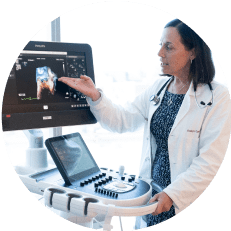


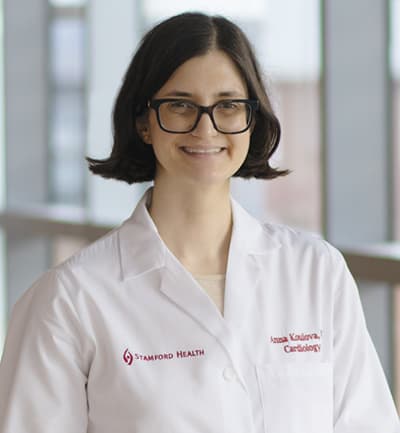
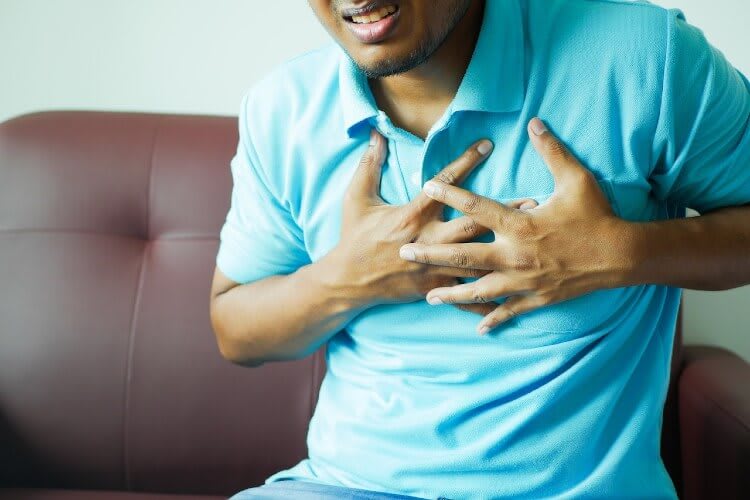


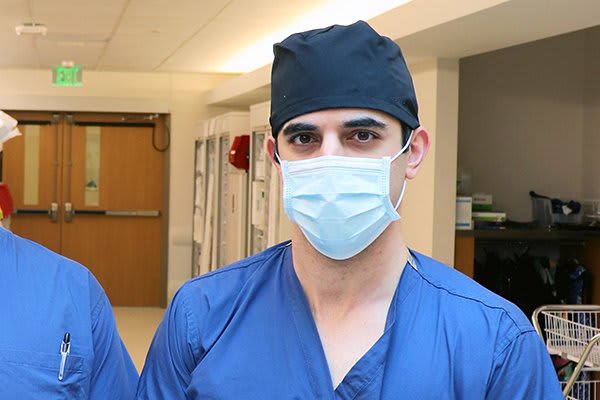
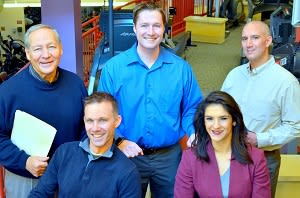


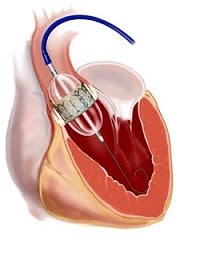


)